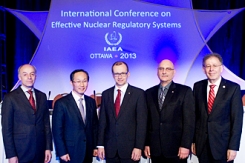By Hirotsugu Terasaki* | IDN-InDepth NewsViewpoint
TOKYO (IDN) – It is a cause of grave concern that there are an increasing number of regions under tension and exposed to the threat of nuclear weapons; namely, the Middle East, South Asia and Northeast Asia. Today, there are more countries that seem to be adhering to the doctrine of nuclear deterrence and/or extended deterrence than during the Cold War era.
This reminds me of UN Secretary-General Ban Ki-moon’s warning to the world, “Unfortunately, the doctrine of nuclear deterrence has proven to be contagious. This has made non-proliferation more difficult, which in turn raises new risks that nuclear weapons will be used.” It is critical that all of us share an awareness that humanity is standing at an important tipping point today.










